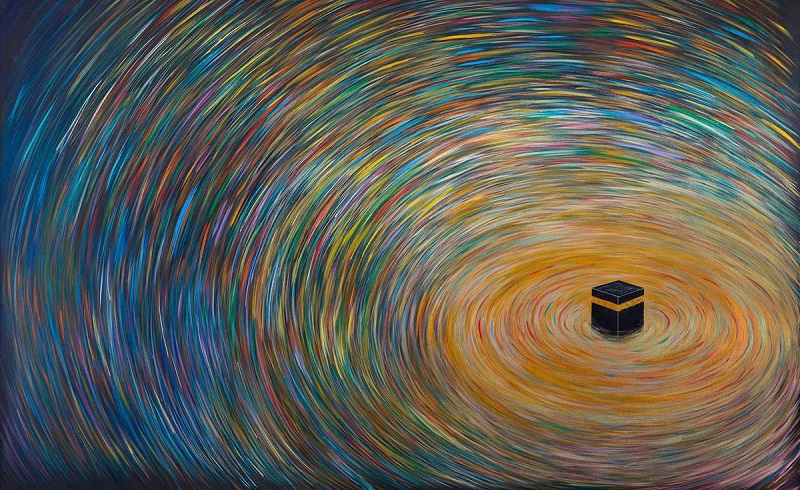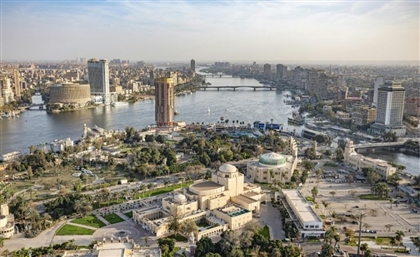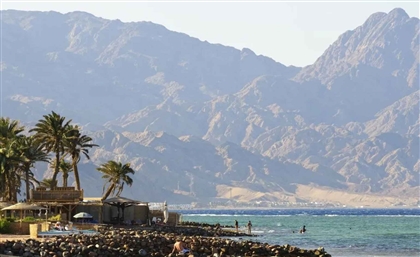Virtual Umrah? The Startup Bringing Muslim Pilgrimage Into the Digital Age
Kenyan entrepreneur Ahmed Al Hadad talks about his 2015 venture iUmrah, an online service platform that allows worshippers to perform Hajj and Umrah virtually to reduce the journey's carbon emissions and negative environmental impacts.

Every year, more than 15 million Muslims make their way to the holy city of Mecca in Saudi Arabia to perform various Islamic religious rituals. In 2017, the city hosted 2 million pilgrims from all over the world during Hajj season alone. These numbers may come as good news to many across the Muslim world, but they don’t tell the whole story.
According to a Griffith University paper, each pilgrim to Mecca during Hajj season is responsible for “60.5 kg CO2-eq per day as a result of transportation, hotel stay, meals and waste management.” While Hajj, a mandatory religious duty for those physically and financially able to perform it, is restricted to 5-6 days a year – from the 8th until the 12th of Dhul Hijjah, the last month in the Islamic calendar, other rituals, like Umrah (lesser pilgrimage), can be performed all year round, which comes with an even higher environmental cost. Cue Kenyan entrepreneur Ahmed Al Haddad, who founded iUmrah in 2015.
As the name of the startup suggests, iUmrah is an online platform that allows worshippers to perform the ritual virtually. “iUmrah is based on the concept of outsourcing pilgrimage to reduce the carbon emissions and negative environmental impacts associated with it,” Haddad says. “Anyone anywhere in the world can request for their pilgrimage to be performed on his or her behalf by someone already in Saudi Arabia. This eliminates the need to travel and go through the lengthy process to come over to Mecca and perform Umrah.”
iUmrah is based on the concept of outsourcing pilgrimage to reduce the carbon emissions and negative environmental impacts associated with it
Unlike Hajj, Umrah is a non-mandatory, non-time restricted pilgrimage that can be delegated to someone else to perform. However, Hajj by proxy is permissible under Sharia law in the event of terminal illness and death, it is also a dispensation for people with disabilities, provided the surrogate is a Hajji (someone who had completed Hajj before). And although Umrah is responsible for more carbon emissions than Hajj, the latter’s accumulative carbon footprint over the years can also take a toll on the environment, something Haddad is all too aware of and plans to address with a future virtual Hajj platform as well, saying the additional service is part of iUmrah’s vision.
The idea dawned on the microelectronics engineer-turned-environmentalist entrepreneur when helping with his parents’ travel arrangements to Mecca for Umrah. “I realized there is a major need. The process normally takes too long and there is a lot of bureaucracy to secure visas. And when my parents finally go, they find that it’s not that easy for them [physically],” Haddad illustrates.

The online platform, which will soon roll out a mobile app, matches those who wish to perform the religious rite virtually with Mecca residents willing to complete it on their behalf. iUmrah also includes a video feed component that allows virtual worshippers to live stream their pilgrimage being performed.
Additionally, the startup, in collaboration with a pool of registered farmers, plants 51 trees in different parts in the world for each virtual pilgrimage request they complete. “Farmers can register onto the iUmrah. It is a platform that integrates the person who requests pilgrimage by proxy, the person who performs it for them, and the farmer who actually plants the trees to offset your carbon footprint,” he elaborates. “It’s a triple bottom line business model, so whatever you do you take care of the environment first,” Haddad says of his pre-seed startup.
The hefty environmental price tag is not the only thing iUmrah aims to circumvent. With the prices of Hajj and Umrah packages skyrocketing - anywhere between $1,500 and $3,000 - with increasing demand by the world's 1.5 billion Muslims, the question of affordability also comes into play. The startup prices their service at a convenient $500 per virtual Umrah. “You have to understand that Mecca is one of the most expensive cities in the world, in square meter terms,” Haddad explains. “As far as accommodation, your hotel stay will be quite expensive, flying in is quite expensive. And there are these geopolitical tensions that are now emerging, so the platform also helps in this sense.”

iUmrah advertised on Reuters' Times Square digital billboard.
By 2030, Saudi Arabia will host 30 million pilgrims annually
According to the UNWTO, around 300-330 million people visit key holy cities (such as Mecca, Medina, Bethlehem, Jerusalem, and Vatican City, among others) annually to perform spiritual and religious rituals. Muslim sacred travel is the world’s largest religious tourism industry, estimated at $27 billion. Yet, with global tourism on course to hit an all-time high of 1.8 billion travellers annually by 2030, religious tourism doesn’t seem like the only culprit. “We can measure the carbon footprint of other tourism sectors or other business activities, but faith and spirituality are the strongest attractions,” he remarks. “By 2030, Saudi Arabia will host 30 million pilgrims annually. If we look at Jerusalem, the influx of religious tourists has also consistently grown in the last 50 or 60 years. What we want to do is use technology to make these cities sustainable.”
The UAE-registered startup, which is now just gearing up for its series A round, is slated for initial public offering (IPO) in 2020.
Building a business model aimed at changing the face of a religious rite as its followers have come to know it – especially in Islam, the world’s most recent Abrahamic religion and one whose institutions still haven’t fully departed from its fundamental interpretations and mainstays – can be particularly vexed when attempted in Saudi Arabia, the Muslim world’s most conservative country. “It would have been controversial in Saudi Arabia two years ago, but things are changing,” he says. “The only way you can disrupt something is start at the beginning, create your own space. And we have successfully disrupted it.”
Main image artwork: Journey around the Kaaba by Siddiqa Juma.
Check out iUmrah's website or visit their Facebook page for more.
This article was originally published by SceneArabia.






















